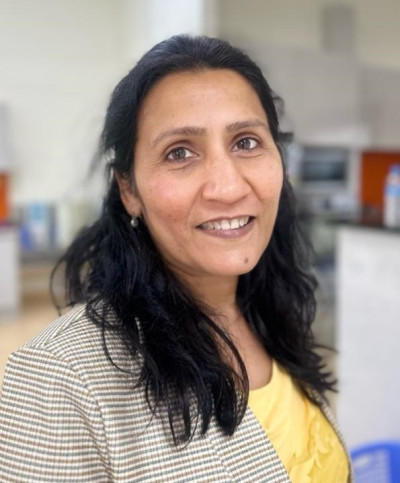TAKING BABY STEPS TOGETHER TOWARD FRUIT AND VEGETABLE-RICH MEALS
1.6.2023

When Kashmira Sheth, Centre Manager at Happy Turtle Daycare, introduced a vegetarian menu three years ago, she had no idea the popularity of her recipes would lead to cooking classes for parents in her home.
During the COVID-19 lockdowns, Kashmira wanted to make a shift to a new, more fruit and vegetable-rich menu at her centre. She says she was inspired by South Asian cuisine, which is often mostly vegetarian.
“My husband asked, ‘our centre is a diverse community of different cultures...do you think 100% vegetarian will work at the centre?’ I said trust me, the children will love it,” says Kashmira.
The barriers to introducing more fruit and vegetable-rich recipes at early learning centres include winning over children’s taste buds and parent concerns. But Kashmira says a collaborative and holistic approach to introducing new recipes can lead to everyone accepting more fruits and vegetables at meal times.
Getting creative
For some children, it takes more than a menu change to convince them to try something new.
“We incorporate vegetables into story time,” says Kashmira. “If that does not work, we make vegetables more attractive to them by adding them into a familiar meal like pasta.”
Kashmira also makes use of resources online like posters to familiarise children with different fruits and vegetables.
Involving parents
Ultimately, eating more fruits and vegetables requires a collaboration between the centre, whānau and children.
“When we have a birthday celebration, we encourage parents to bring fruit for a fruit platter - which also brings down fruit costs for the centre,” says Kashmira.
Now, Kashmira says children who previously preferred meat will request her meals at home, which encourages parents to incorporate more vegetables into their meals. “We even have a few children who tell their parents ‘You are not making the dal fry the way Happy Turtle does,’” says Kashmira.
Kashmira shares many of Happy Turtle’s most popular recipes with parents, saying that children who graduate miss the food that they’ve come to enjoy at the centre.
Kashmira recipe cards
For health advice call Healthline for free anytime on 0800 611 116
Resources
- All
- Alcohol
-
ARPHS translated resources
- Fact sheet - Typhoid and Paratyphoi…
- Fact sheet - VTEC/STEC (Samoan)
- Fact sheet - Dengue fever (Samoan)
- Fact sheet - Dengue fever (Tongan)
- Fact sheet - Dengue fever (Fijian)
- Fact sheet - Dengue fever (Cook Isl…
- Fact sheet - Hepatitis A (Samoan)
- Fact sheet - Hand washing and hygie…
- To view more click here
- Clinical pathways
- Dengue fever
- Early childhood education centres
- Hand hygiene
- Hazardous substances
-
Healthy Active Learning
- Weaving in culture for happy and en…
- Food for thought - learning from 5+…
- Planting seeds - growing St Mary's …
- Awesome mealtimes at Awesome Kiwis
- Embracing the thrills of risky play…
- Water play on a summer's day
- Flourish with nourishing celebratio…
- It’s not kindergarten without a gar…
- To view more click here
- Hepatitis A B C
- Influenza - The Flu
- Influenza-Like Illness
- Lead and lead poisioning
- Legionellosis
- Malaria
- Measles
- Meningococcal
- Monthly promotions
- Mumps
- Norovirus
- Organisational
- Rheumatic Fever
- Rotavirus
- Shigellosis
-
Submissions
- NPHS Northern Region Submission - A…
- Submission: Kaipara District Counci…
- Submission: Far North District Coun…
- Submission: Whangārei District Coun…
- Submission: Auckland Council Long-T…
- Submission: Auckland Integrated Tra…
- Submission: Annual Budget 2023-2024
- Submission: Smokefree Environments …
- To view more click here
- Tattooing
- Travelling
- Tuberculosis
- Typhoid and paratyphoid
- Vaccinator authorisation
- VTEC/STEC
- Water
- Whooping cough - Pertussis
- Yersiniosis